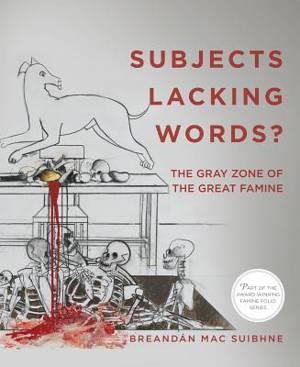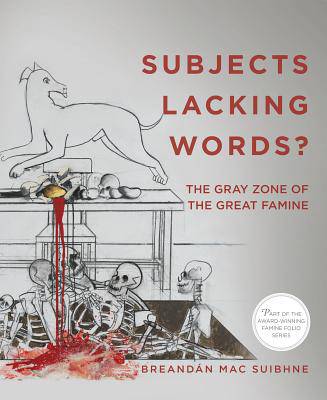
Bedankt voor het vertrouwen het afgelopen jaar! Om jou te bedanken bieden we GRATIS verzending (in België) aan op alles gedurende de hele maand januari.
- Afhalen na 1 uur in een winkel met voorraad
- In januari gratis thuislevering in België
- Ruim aanbod met 7 miljoen producten
Bedankt voor het vertrouwen het afgelopen jaar! Om jou te bedanken bieden we GRATIS verzending (in België) aan op alles gedurende de hele maand januari.
- Afhalen na 1 uur in een winkel met voorraad
- In januari gratis thuislevering in België
- Ruim aanbod met 7 miljoen producten
Zoeken
Omschrijving
In the time of Ireland's Great Famine, poor people were, in places, so "reduced" that they treated each other with brutal callousness. Husbands abandoned wives and children. Mothers snatched food from the hands of infants. Neighbours stole each other's rations. People even killed for food. And this callousness extended to the dead. Human bodies were dumped in mass graves or left unburied to be ravaged by dogs and pigs, rats, ravens, and gulls. There were reports too of cannibalism. In later years, some people, who themselves suffered in the 1840s, were ashamed of having failed to offer human solidarity to others in distress. Yet if there were subjects lacking words--things difficult to describe or explain--those who had been to the abyss did talk of it. Survivors of other humanitarian crises have shown human beings to be remarkably resilient. And, in the case of Ireland, there is no basis for the facile and insular notion that the Great Famine was "so deeply tragic as to be too traumatic to recall".
Specificaties
Betrokkenen
- Auteur(s):
- Uitgeverij:
Inhoud
- Aantal bladzijden:
- 44
- Taal:
- Engels
- Reeks:
Eigenschappen
- Productcode (EAN):
- 9780997837476
- Verschijningsdatum:
- 1/09/2017
- Uitvoering:
- Paperback
- Formaat:
- Trade paperback (VS)
- Afmetingen:
- 119 mm x 273 mm
- Gewicht:
- 254 g

Alleen bij Standaard Boekhandel
+ 41 punten op je klantenkaart van Standaard Boekhandel
Beoordelingen
We publiceren alleen reviews die voldoen aan de voorwaarden voor reviews. Bekijk onze voorwaarden voor reviews.









